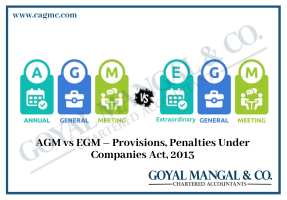
Opening a current account is a crucial step for private limited companies to manage their finances effectively. A current account provides a dedicated platform to handle day-to-day transactions, payments, and receipts. This step-by-step guide aims to simplify the process of opening current account for a private limited company. By following these steps, you can establish a solid financial foundation for your business and ensure smooth operations. Let’s dive into the essential steps required to open a current account for your private limited company.
Overview of the process to open a current account for a private limited company
The process to open a current account for a private limited company involves several key steps. Zero balance current accounts are often offered by banks to cater to the needs of certain individuals or businesses that may not have a consistent or substantial amount of funds to keep in their account. This type of account is especially useful for startups, small businesses, or individuals who have fluctuating cash flows. Firstly, research and choose a reputable bank that caters to business accounts. Gather necessary documents, such as the certificate of incorporation and KYC documents. Schedule an appointment with the chosen bank and visit their branch with all required documents. Complete the application form accurately, providing company details. Submit the necessary documents, including originals and copies. Understand the minimum balance and account charges. Optionally, choose additional services offered by the bank. Undergo verification and respond promptly to inquiries. Once verified, the account will be activated, establishing a strong financial foundation for the private limited company.
Importance of a current account for private limited companies
A current account holds significant importance for private limited companies due to the following reasons:
- Separation of Business and Personal Finances: A current account allows businesses to keep their financial transactions separate from personal finances. It helps maintain a clear distinction between business and personal expenses, facilitating accurate accounting and financial management.
- Professionalism and Credibility: Having a dedicated current account enhances the professional image and credibility of a private limited company. It demonstrates to clients, suppliers, and partners that the business is well-established, organized, and committed to financial transparency.
- Efficient Cash Flow Management: A current account enables efficient management of cash flow for business operations. It provides a platform to receive and make payments, issue cheques, and execute electronic transactions. This facilitates smooth payment processing, streamlines business transactions, and ensures timely payments to suppliers and employees.
- Access to Banking Services: Opening a current account grants access to a wide range of banking services tailored for businesses. These services may include online banking, mobile banking apps, credit facilities, business loans, merchant services, and other financial tools that simplify day-to-day banking and financial operations.
- Easy Audit and Compliance: Maintaining a current account helps in maintaining a clear financial trail for auditing and compliance purposes. It simplifies the tracking of financial transactions, making it easier to generate accurate financial statements, prepare tax returns, and comply with regulatory requirements.
- Payment Processing and Business Expansion: A current account enables businesses to accept payments from customers through various channels such as electronic fund transfers, credit card payments, and online payment gateways. This facilitates seamless payment processing and contributes to the scalability and growth of the business.
- Financial Recordkeeping: A current account provides a centralized location for recording and tracking financial transactions. It simplifies the process of monitoring cash inflows and outflows, making it easier to monitor expenses, track revenue, and analyze financial performance.
Benefits of having a dedicated current account
- Financial Organization: A dedicated current account helps maintain financial organization by separating personal and business transactions, making it easier to track and manage expenses.
- Professional Image: Having a dedicated current account adds credibility and professionalism to a business, making it more attractive to clients, suppliers, and potential partners.
- Streamlined Transactions: With a current account, businesses can efficiently process payments, issue checks, and conduct electronic transactions, ensuring smooth and timely financial transactions.
- Compliance and Audit Readiness: By keeping business transactions in a dedicated current account, companies can easily maintain accurate financial records, facilitating tax compliance and audit readiness.
- Access to Business Banking Services: Opening a current account grants access to a range of specialized banking services tailored for businesses, such as online banking, business loans, merchant services, and other financial tools that support efficient financial management.
Documents required for opening a current account
The specific document requirements may vary slightly depending on the bank and jurisdiction, but generally, the following documents are commonly required for opening a current account for a private limited company:
- Certificate of Incorporation: This document verifies the legal existence of the private limited company and is issued by the relevant government authority.
- Memorandum and Articles of Association: These documents outline the company’s structure, purpose, and internal regulations. They provide information about the company’s shareholders, directors, and authorized signatories.
- Board Resolution: A board resolution authorizes the opening of a current account and specifies the individuals who are authorized to operate the account on behalf of the company.
- Know Your Customer (KYC) Documents: KYC documents are required for all directors, shareholders, and authorized signatories. They typically include identification proof (such as passports or identity cards), address proof (such as utility bills or bank statements), and photographs.
- Address Proof of Registered Office: Proof of the company’s registered office address, such as a recent utility bill, lease agreement, or property ownership documents, may be required.
- Tax Identification Number: Depending on the jurisdiction, the company’s tax identification number or equivalent may need to be provided.
Procedure for filling out the application form
Filling out the application form to open a current account for your private limited company is a crucial step in the process. It’s essential to approach this task with care and accuracy to ensure a smooth and efficient account opening experience.

- Read the Instructions: Start by carefully reading the instructions provided with the application form. Understand the required information and any specific guidelines mentioned.
- Company Details: Begin by providing the company’s name, registered address, and contact information. Double-check these details for accuracy, as any errors may cause complications later.
- Director and Shareholder Information: Fill in the names, addresses, and contact details of all directors and shareholders. Ensure that the information matches the official records and supporting documents.
- Authorized Signatories: Indicate the individuals authorized to operate the current account on behalf of the company. Include their names, signatures, and any additional required information.
- Business Activity and Industry: Describe the nature of your business activity and specify the industry or sector in which your company operates. This information helps the bank understand your business better.
- Account Services: Select the account services you require, such as online banking, checkbooks, debit cards, or any other specific services offered by the bank. Consider your business needs and choose accordingly.
Minimum Balance and Account Charges
Minimum balance in current account refers to the minimum amount of funds that must be maintained in a current account at all times. It is typically set by the bank and varies based on factors such as the type of account and the bank’s policies. Account charges, on the other hand, are fees levied by the bank for maintaining the current account and utilizing various banking services.
Understanding the bank’s terms and conditions is crucial to avoid any surprises or penalties. It is essential to review and comprehend the bank’s fee structure, including account maintenance charges, transaction fees, and penalties for falling below the minimum balance. Failing to maintain the required minimum balance can result in penalties, such as monthly charges or a reduced interest rate on the account. By maintaining the required minimum balance, businesses can avoid unnecessary fees and maintain a positive banking relationship.
Verification and Account Activation
During the verification process, the bank will conduct background checks and validate the submitted documents. It is important to cooperate fully with the bank and promptly respond to any queries or requests for additional information. This will help facilitate the verification process and ensure its smooth completion. Once the bank has successfully verified the provided information, they will proceed to activate your current account, allowing you to start utilizing its services for your private limited company’s financial transactions.
Conclusion
In conclusion, a current account holds immense importance for private limited companies. It provides financial organization, professional credibility, efficient cash flow management, compliance readiness, and access to banking services. To open a current account, businesses should follow a step-by-step guide that involves research, gathering required documents, completing the application form accurately, understanding minimum balance and account charges, and undergoing verification. By following this process, private limited companies can establish a solid financial foundation, ensuring smooth operations and effective financial management for their business.







